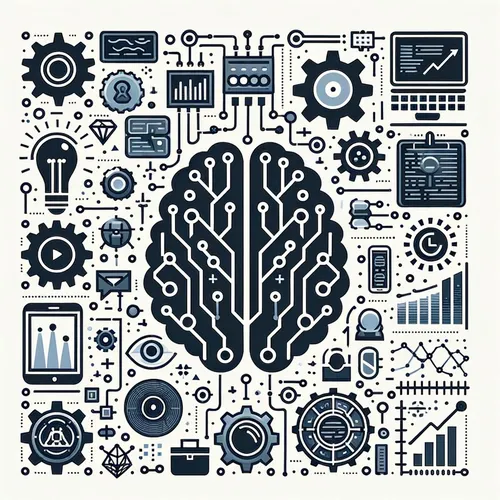AI Frenzy: Corporations Crave Machine Learning Magic in 2025 Tech Boom
- Author
- Quiet. Please
- Published
- Mon 01 Sep 2025
- Episode Link
- https://www.spreaker.com/episode/ai-frenzy-corporations-crave-machine-learning-magic-in-2025-tech-boom--67578491
This is you Applied AI Daily: Machine Learning & Business Applications podcast.
Applied artificial intelligence is powering a visible shift in how global businesses unlock value, and as we move into early September of 2025, practical machine learning adoption is surging in both scope and variety. According to Sci-Tech Today, over fifty percent of companies have already woven machine learning or artificial intelligence into at least one area of their operations, with nearly half relying on these tools to process large volumes of data and extract actionable insights. This reflects a broader market trend: the global machine learning market is on track to hit one hundred thirteen billion dollars this year, and North America dominates with an eighty-five percent adoption rate, putting pressure on competitors worldwide to accelerate their own implementations.
In real-world cases, machine learning is driving transformation in retail, finance, healthcare, and manufacturing. Amazon’s recommendation systems, which blend natural language processing and predictive analytics, now drive thirty-five percent of the company’s sales by combining granular user behavior data with vast product inventories. Similarly, financial industry leaders like Banco Covalto are deploying generative AI to reduce loan approval times by over ninety percent, boosting both efficiency and customer satisfaction. In healthcare, IBM Watson Health continues to leverage advanced natural language processing and machine learning models to interpret medical records, supporting clinicians with faster and more accurate diagnoses.
Technical integration requires robust cloud platforms like Amazon Web Services and Google Cloud, which offer hundreds of off-the-shelf models and APIs for seamless deployment. Actionable strategies for success include prioritizing projects with clear return on investment metrics, such as reduced customer wait times, increased personalization, or predictive maintenance that avoids costly downtime. New capabilities in agentic and generative AI systems mean models are not just analyzing data but taking actions—automating workflows and delivering measurable value.
This year, the global investment in artificial intelligence initiatives is expected to approach two hundred billion dollars, and more than ninety percent of corporations report tangible returns from deep learning partnerships. However, successful adoption depends on overcoming skills gaps and integrating machine learning with legacy systems—a reason why analytical thinking and AI-related expertise are among the world’s fastest-growing job demands.
Looking to the future, the rapid expansion of natural language processing and computer vision markets, combined with the evolution of explainable AI, means listeners can expect even more accessible, transparent, and industry-specific applications across logistics, HR, and customer service. For practitioners, the time is now to invest in upskilling teams, choose scalable platforms, and focus on quick-win automation projects that demonstrate clear value.
Thank you for tuning in to Applied AI Daily. Come back next week for more insights. This has been a Quiet Please production; for more, check out Quiet Please Dot A I.
For more http://www.quietplease.ai
Get the best deals https://amzn.to/3ODvOta
